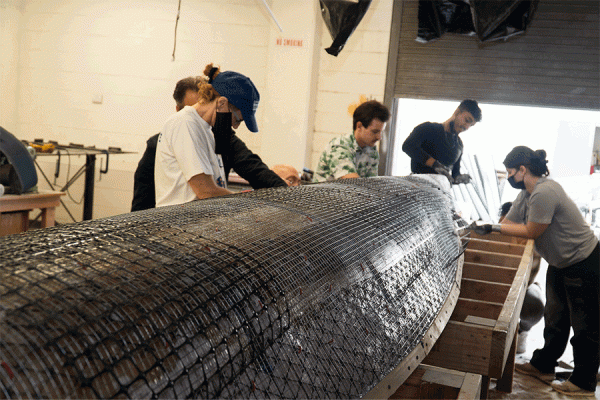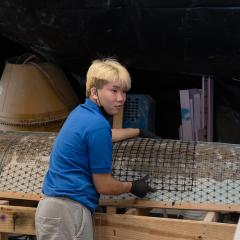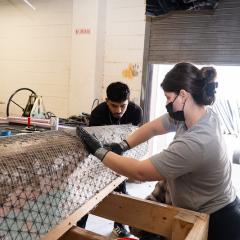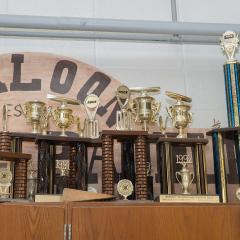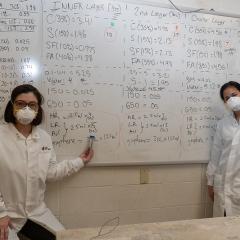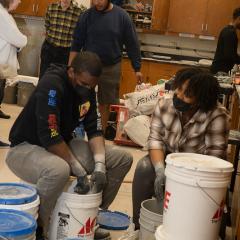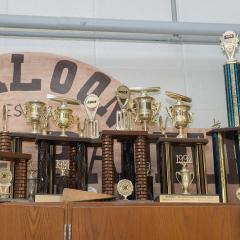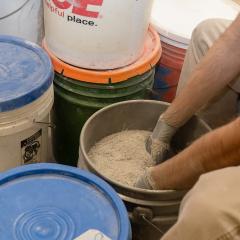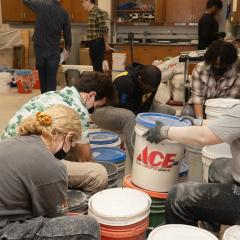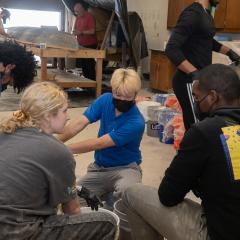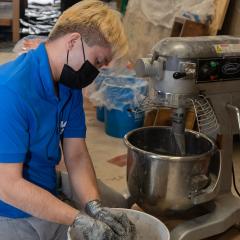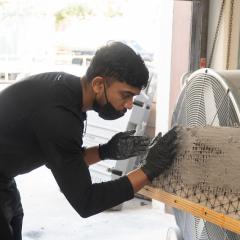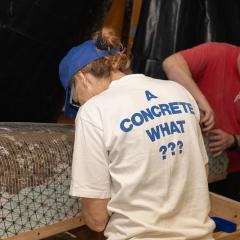The University of New Orleans student chapter of the American Society of Civil Engineers is hosting the largest gathering of engineering universities along the Gulf Coast on March 7-9 as part of the 2024 American Society of Civil Engineers Gulf Coast Student Symposium.
The symposium will bring more than 300 engineering students from 15 universities in Louisiana, Mississippi and Alabama for three days of innovative engineering competitions that include a concrete canoe race, construction of a steel bridge and opportunities to learn more about the engineering industry.
The symposium will culminate with an awards ceremony and a Fais Do-Do at UNO’s Amphitheatre.
“It’s a big deal,” said Gianna Cothren, UNO professor of civil engineering and ASCE faculty adviser. “It’s mixing the engineering design world with the construction world. This isn’t something that you get in a classroom, so these types of activities are where they get that.”
UNO is competing in most of the contests, including the steel bridge and concrete canoe competitions that require hours of labor, which is especially taxing for their small teams, Cothren said. And the stakes are high—whoever wins regional qualifies for the national competition.
Last year, UNO’s steel bridge team beat out veteran teams from 15 other universities in Mobile, Alabama to win first place and punch their ticket to nationals. It was the first time since 2018 that UNO had participated in the steel bridge competition, which is intended for future design professionals to demonstrate their knowledge and skills.
“I’m just so proud to see what comes out of that perseverance for such a small group of people,” Cothren said. “They are learning everything you learn at a bigger school; we just do everything on a smaller scale.”
While UNO’s steel bridge team is gearing up to defend its regional title, UNO’s concrete canoe team has something to prove. Last year, the team placed eighth in the competition, Cothren said.
“The design was good, but it was heavy and didn't perform well," she said. “This one should be at least in the top three—if it doesn’t win!”
The canoe competition combines engineering excellence, hydrodynamic design and racing technique and is known as “America’s Cup of Civil Engineering,” according to the ASCE. The canoe, which is built to hold four people, will be raced on Bayou St. John in New Orleans.
“Basically, your canoe is a prototype and you’re trying to win the bid to mass produce your canoe,” Cothren said. “That’s the premise behind the competition. These judges are eventually going to select the winning bid based on all these different factors, not only your race, but your technical presentation. You have to do cost estimates and stress analysis. There is a lot that goes on.”
The canoe also has to pass a “swamp” test. Prior to the race, each canoe is submerged into a tank of water.
“We’ll have a big tank built and every school is going to have to put their canoe in and push it underwater,” Cothren said. “It’s going to have to pop back up. It’s for safety. If you fall out of it or if it breaks, we are supposed to be able to drag it back to shore.”
Earlier this month, students were working hard at mixing a lightweight concrete mixture that’s used to cover the hull of the fiberglass canoe. Team captain Lucas Trinh was in charge of creating the right recipe for the concrete mix.
“The concrete that they are mixing up, they are going through special specifications,” Cothren said. “Lucas has been testing these concrete mixes since last September!”
Trinh, a senior majoring in civil and environmental engineering, along with other team members, were busy hand mixing the concrete and layering the paste on the canoe. The mixture should set, or cure, for 28 days after it is applied, but UNO's canoe will only get 24 days due to a few construction delays.
In developing the concrete mixture Trinh said he sought out the expertise of professional engineers and swapped out rocks and sand, which are heavier, for lighter substances such as clay and little glass beads.
“I’m very excited. This is actually my last semester and I’m trying to enjoy my last moments at UNO,” Trinh said. “I’m so proud. This is one of the best moments so far.”
The symposium starts Thursday, March 7 at 3 p.m. in UNO’s University Center. The canoe swamp test is scheduled from 3 p.m. to 5 p.m. on that day. The canoe races are scheduled for Friday, March 8 from 8 a.m. to 4 p.m. on Bayou St. John in New Orleans.
The public is invited to attend the competitive events, most of which will be held on UNO’s campus. A Fais Do Do Festival will close out the symposium on Saturday, March 9, starting at 7 p.m.
For additional information on the symposium events, visit here.


